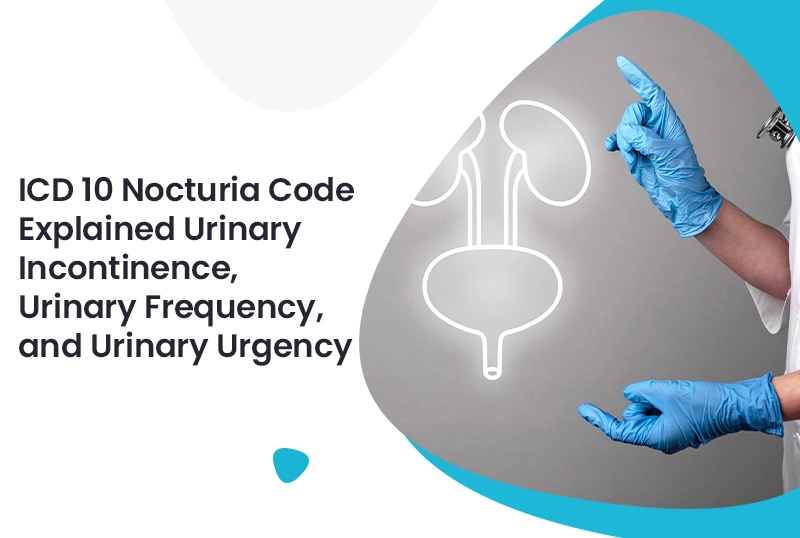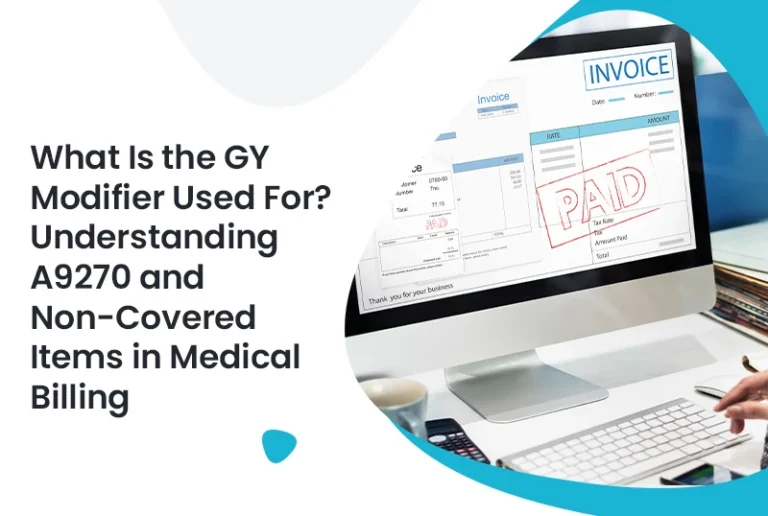Understanding urinary symptoms and their proper documentation is crucial for effective diagnosis, treatment, and medical billing. In this guide, we’ll explore the ICD 10 nocturia code and how it relates to urinary incontinence, urinary frequency, and urinary urgency. We’ll also discuss how partnering with a reliable medical billing company can help ensure accurate coding and smooth insurance claims, especially for small practices managing these conditions.
What Is Nocturia and Its ICD 10 Code?
Nocturia is a condition characterized by frequent urination during the night that interrupts sleep. According to the ICD-10-CM system, the specific code for nocturia is R35.1. This code is billable and used to document nocturia when no definitive underlying cause has been established.
Nocturia often accompanies other urinary symptoms such as:
- Urinary Incontinence: The involuntary leakage of urine.
- Urinary Frequency: An abnormally high frequency of urination during the day (ICD 10 code R35.0).
- Urinary Urgency: A sudden, compelling urge to urinate that is difficult to defer.
Proper use of these ICD 10 codes is essential for accurate clinical documentation and insurance billing.
Why Accurate ICD 10 Coding Matters
Have you ever wondered why your insurance claim gets delayed or denied? One common reason is inaccurate or incomplete coding. Using the exact ICD 10 nocturia code and related urinary condition codes ensures:
- Correct diagnosis and treatment planning. Accurate coding helps healthcare providers tailor treatments effectively.
- Timely insurance reimbursement. Proper coding reduces claim denials and speeds up payments.
- Compliance with regulatory standards. This minimizes audit risks and legal issues.
To achieve this, many healthcare providers rely on credentialing services to verify provider qualifications and maintain compliance with insurance requirements, which helps reduce claim denials and streamline approvals.
Effective Strategies for Accurate Documentation and Claim Submission of Urinary Conditions
- Document all urinary symptoms clearly in the medical record, including frequency, urgency, and incontinence details.
- Use the most specific ICD 10 codes available, such as R35.1 for nocturia and N39.3 for stress urinary incontinence.
- Sequence codes properly: Code the underlying cause first, then add symptom codes like nocturia as secondary.
- Partner with experienced medical billing companies that specialize in small practices to ensure claims are submitted accurately and timely.
- Utilize credentialing services to verify provider qualifications and maintain compliance with insurance requirements.
- Implement revenue cycle management healthcare practices to streamline billing, reduce errors, and improve cash flow.
The Role of Billing Support and Credential Verification in Managing Urinary Disorders
Behind every successful insurance claim is a medical billing service that ensures your ICD 10 nocturia code and related diagnoses are coded correctly and submitted without errors. For small practices, outsourcing billing services means more time focused on patient care and less on paperwork.
Moreover, professional credentialing services verify that healthcare providers meet insurance and regulatory standards. This reduces claim denials related to provider eligibility and speeds up reimbursement.
Together, these services optimize healthcare revenue cycle management, ensuring practices remain financially healthy while delivering quality care.
Real-World Example: Improving Billing Accuracy for Urinary Symptoms
A urology clinic noticed frequent claim denials due to improper coding of nocturia and urinary incontinence. After partnering with a medical billing company experienced in genitourinary coding and credentialing services, their claim approval rate improved by 40%, and reimbursement times shortened significantly. This allowed the clinic to invest more resources into patient care and education.
Conclusion: Mastering ICD 10 Nocturia Coding for Better Care and Billing
Accurate use of the ICD 10 nocturia code along with related urinary symptom codes is vital for effective patient care and smooth medical billing. By following best documentation practices, partnering with skilled medical billing services, and maintaining proper credentialing, healthcare providers can enhance both clinical outcomes and financial performance through efficient revenue cycle management healthcare.
For more detailed and authoritative information on nocturia and ICD 10 coding, visit the Centers for Medicare & Medicaid Services (CMS) ICD-10-CM Official Guidelines.
FAQs
Q1: What is the ICD 10 code for nocturia?
The code is R35.1, used for frequent nighttime urination without a confirmed underlying cause.
Q2: How is urinary incontinence coded in ICD 10?
Urinary incontinence has several codes depending on type; for example, stress incontinence is coded as N39.3.
Q3: Can urinary frequency and urgency have different ICD 10 codes?
Yes, urinary frequency is R35.0, and urinary urgency is coded separately, often under N39.41.
Q4: Why is proper coding important for medical billing?
Proper coding ensures accurate insurance claims, faster reimbursements, and compliance with regulations.
Q5: How do credentialing services help in billing for urinary disorders?
They verify provider qualifications, reducing claim denials related to eligibility and speeding up payments.







